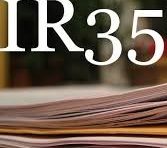Not on the facts of the case held the High Court.
The Claimant was a manager of a supermarket. He was very successful but became ill through occupational stress and alleged this was due to the negligence and/or breach of statutory duty on the part of B&Q. A significant part of the Claimant’s case was the lack of risk assessment by B and Q in relation to stress.
The Claimant was off work with depression for around five months. He received medication and therapy. He returned on a phased basis at a store nearer his home address which was less busy than the store he previously managed. This,however, did not work out and he was recertified as unfit for work due to depression, and launched a claim.
The question for the Judge was whether the injury was reasonably foreseeable by B and Q.
According to the Judge an employer has no general obligation to make searching or intrusive enquiries and may take at face value what an employee tells him. In particular, an employee who returns to work after a period of sickness without qualification is usually implying that he believes himself to be fit to return to the work he was doing before. The foreseeability threshold in stress claims is therefore high.
On the facts the Claimant’s claim failed at the first hurdle ‘foreseeability’ in respect of his first breakdown. This was because of his long managerial career in charge of large retail outlets with no psychiatric history. As to the relapse suffered by him, B&Q clearly now knew he had suffered a psychiatric illness, however, the fact he was still taking medication was not determinative as to how his employment should have been handled. There are many people holding down demanding jobs who still require medication. On the facts, given the high standard of proof required, the relapse was also not foreseeable by the employer.
There remained the issue of the lack of a general risk assessment. But B&Q had a document about managing stress, inviting individuals to identify and notify the employer of any symptoms concerned. The Judge was of the opinion that the Claimant had made insufficient efforts to do this and therefore concluded that, on the facts of the particular case, a wider risk assessment would have had no effect on the outcome.
Tips for Employers
1. The breach of duty threshold is high as the employee has to establish that the harm suffered was “reasonably forseeable”.
2. The employer is generally entitled to take what it is told by the employee at face value, unless it has good reason to think otherwise. There is no general obligation to make searching enquiries of the employee or seek permission for medical input.
3. To trigger an obligation to make enquiries and potentially complete a risk assessment, there must be clear indications of a likelihood of harm to health arising from stress at work (i.e. issues relating to sickness absence, complaints from the relevant employee or others and/or a known history of stress related illness) whereby any reasonable employer would realise that it should do something about it.
4. The fact that an employee is on medication is not an indication as to how their employment should be handled as many people hold down demanding jobs with the support of medication for underlying psychiatric illnesses.
Should you have any queries, please contact us.


